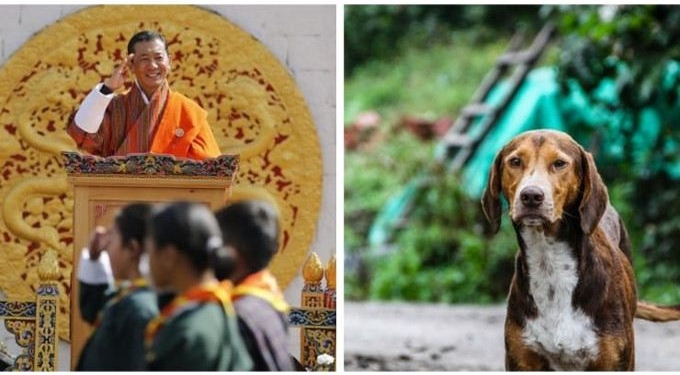
By Jade Small | Creative Commons | TheMindUnleashed.com
(TMU) — The small, secluded Buddhist kingdom of Bhutan is known as one of the happiest countries on Earth. Jigme Singye Wangchuck, the Fourth Dragon King of Bhutan, declared in the 1970s that “gross national happiness” was more important than the gross domestic product, or GDP, showing the world that the wellbeing of Bhutan's citizens is a priority, not it's material growth.
Jigme Khesar Namgyel Wangchuck, the 5th Dragon King took over on December 9, 2006, when his father abdicated the throne in favor of his son with immediate effect.
In 2012, Bhutan’s minister of education told the media:
“GNH is an aspiration, a set of guiding principles through which we are navigating our path towards a sustainable and equitable society. We believe the world needs to do the same before it is too late.”
Cradled by the Himalayas and flanked by India and China, Bhutan is a poor country known for its beautiful forests, mountains, and ancient Buddhist architecture and has been called the “last Shangri-la.” Bhutan’s total GDP for 2019 was just short of $3 billion and the kingdom’s long-term conservation goals are paying dividends. Living up to its constitution, which requires a minimum of 60% of its land to be forested at all times, more than half the country is covered by a network of national parks, nature reserves, and wildlife sanctuaries. It became the first country to commit to being carbon neutral in perpetuity in 2009. At the time, it was already carbon negative with its forests absorbing three times more C02 than the whole country’s emissions.
The kingdom celebrated the birthday of Jigme Khesar Namgyel Wangchuck, the 5th Dragon King, in late February and Prime Minister Lotay Tshering called upon the nation, requesting a unique gift (by western standards) to the king.
The prime minister asked citizens to “plant a tree and care for it, adopt a stray dog, or commit to managing waste in your neighborhood,” adding that “personal commitment such as this would be the best gift for His Majesty.”
Over two thousand people liked the prime minister’s Facebook post, with many sending messages of congratulations to the king on his birthday. One woman commented, “I do all of these things daily! Four dogs, many trees, and always cleaning up beaches.”
Bhutan was known not only for its happiness index but also for its huge number of stray dogs. In 2009, with the help of the Humane Society International, the country carried out a sterilization program to manage the stray population. The volunteers used the catch-neuter-vaccinate-release method, releasing the dogs on the same day at the same location they were found. A National Dog Population Management and Rabies Control Project (NDPMRCP) was launched and as of 2018, approximately 85,000 dogs in Bhutan have undergone sterilization and received anti-rabies vaccinations.
















